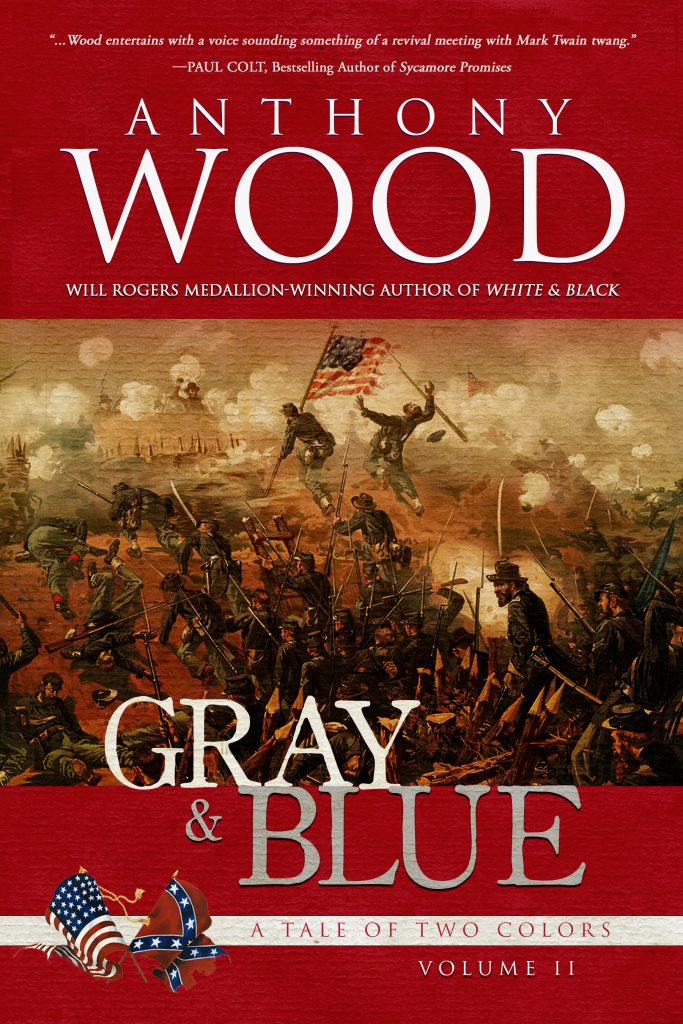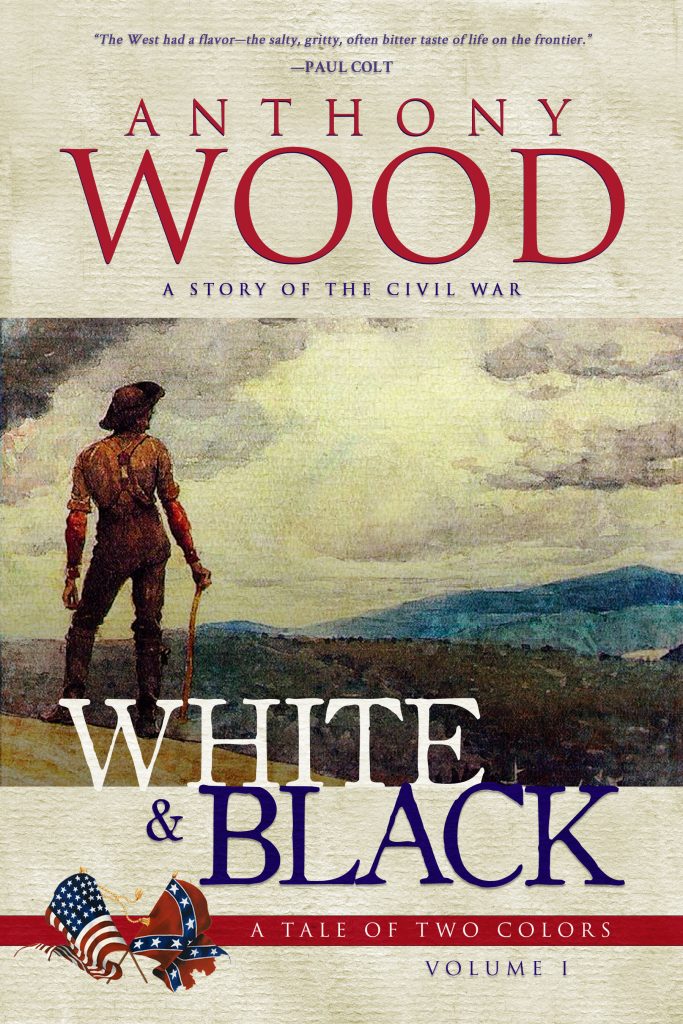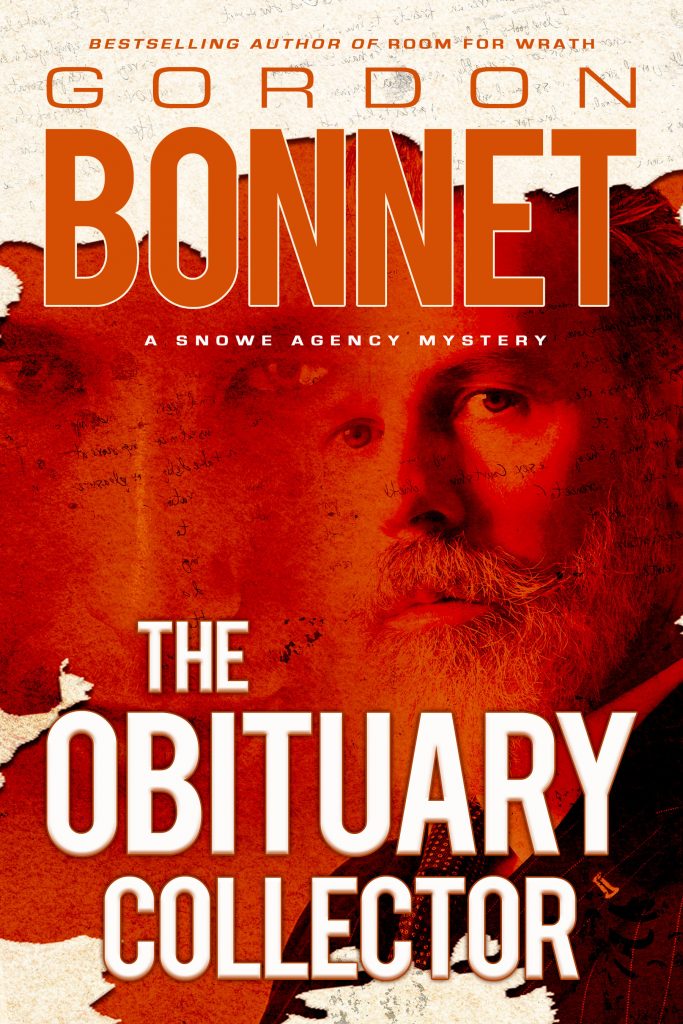Boogie with Chesty
How a Service Dog Brought One Veteran Home
Award-winning author Pamela Foster's moving non-fiction essay recounting the relationship between a Vietnam veteran and his loyal PTSD service dog.
Award-winning author Pamela Foster's moving non-fiction essay recounting the relationship between a Vietnam veteran and his loyal PTSD service dog.
The Odyssey of Geronimo, based on history and Apache culture but told through his eyes, is a revealing epic of Geronimo’s strengths, weaknesses, and character. As a prisoner of war for twenty-three years, Geronimo escaped being hanged by civil authorities in Arizona, rose to become a national “superstar,” and became an astute businessman. He was invited to three world’s fair expositions, numerous parades and fairs in Oklahoma, and rode with five other famous old warriors in Theodore Roosevelt’s 1905 Inaugural Parade.
During his time in captivity, Geronimo became a justice of the peace at Mount Vernon Barracks, Alabama, a village chief at Fort Sill, Oklahoma, and earned pay as an army scout for his leadership. At the 1898 Trans-Mississippi and International Exposition in Omaha, in front of a massive crowd, he debated General Nelson Appleton Miles about the lies Miles had told to convince him and his warriors to surrender. During the debate, the famed Apache warrior and shaman of great power publicly shamed the powerful general for his lack of integrity in his dealings with the Apaches.
Authentic, powerful, and exhaustively researched, award-winning author W. Michael Farmer paints Geronimo with an unflinching eye, presenting the good, the bad, and the ugly of one of history’s most feared and famous warriors.

Following the death of her parents—operatives of a Top Secret government psychic espionage program—Archer Wilson receives an urgent warning from beyond the grave. Your life is in danger. Leave home now or die.
Running for her life and unsure of who she can trust, Archer finds herself caught up in a bizarre world built upon madness and paranoia. Her life, her family, everything she thought she knew is swept away, and nothing is what it seems. At every turn she comes face-to-face with some new and sinister character, each stranger than the last. The brutal and perverted Le Cadavre, with a transistor radio strapped to his chest. The insane Father Muerte, naked and slathered in body paint. All serving Allen Costas, the corrupt and ruthless Director of Psychic Espionage, who has plans of using Archer—and her special gifts—for his own nefarious purposes.
Archer dives deep into this rabbit hole of insanity and emerges to avenge the deaths of her parents. But will this bloody, twisting trail through alternate worlds and dimensions lead her to salvation? Or her own personal hell? Like Technicolor heroin, Michael David’s Psionic will transport you to a vivid new plane of violence, espionage, and schizophrenia that will leave you wrung out and gasping for breath. Enter at your own risk.
Myths. Men. Legends. George S. Patton. John J. Pershing. Pancho Villa. Three larger-than-life figures thrown together in a dusty corner of overlooked history known as the Mexican Punitive Expedition.
It is nothing less than the end of an era. Patton—a junior cavalry officer years before he becomes the war hero tank commander so famously portrayed by George C. Scott—confronts the new realities of twentieth-century warfare. The traditional cavalry missions of reconnaissance and communications are being taken over by the Army’s fledgling air service and the promise of wireless communications. Modern ballistics render the saber—and the horse cavalry itself—obsolete as a fighting force. The prospects for the glorious martial career Patton has been bred for seem all but lost... until the venerable horse soldiers are called out for one last fight.
General John J. “Black Jack” Pershing recognizes young Patton’s frustration and knows the army is ill-prepared for the conflict brewing in Europe. It will need officers of Patton’s stripe. He takes the lieutenant under his wing and mentors him with the assurance “time and invention” will lead him to new purpose. It is the turning point that saves Patton’s military career and a bond that will leave a lasting imprint on American military history.
Exhaustively-researched and packed with action, Will Rogers Medallion-winning author Paul Colt brings his story to life with the gritty authenticity of a master storyteller. Boots and Saddles: A Call to Glory is a triumph that will stay with you long after the bugler calls retreat.

Kidnapped by the Chinook on the great Columbia River in the 1850s, a young Nez Perce girl has finally earned a place in the tribe’s society, as well as a name—Two Blankets. After the Chinook are forcibly removed to a reservation, though, Two Blankets faces a new struggle: finding a place for herself in the rough and rowdy, all-white community that has replaced them at Johnton’s Landing. Acceptance is relatively simple. Keeping herself in the good graces of her husband, the Landing’s headman, Marshall Johnston? That is a different matter entirely.
To help ease her loneliness and solidify her position with her infertile husband, Two Blankets follows her former tribe and becomes pregnant by her one-time lover, the Chinook warrior Standing Bear. She must convince the suspicious and narcissistic Johnston that the child is his, and then maintain that belief at all costs. It’s no easy task, but Two Blankets is no ordinary girl. Using her courage and intelligence—and a little help from her spirit animals, Gray Wolf and White Mouse—she becomes a force to be reckoned with, both on the Landing and beyond.
Well-written and exhaustively researched, R.L. Adare’s final entry in the Two Blankets Trilogy is a gritty and personal portrayal of life on the Western frontier that will keep you turning pages until the very end.
From the author of The New York Times #1 bestselling novel The Carpetbaggers comes a powerful yarn exposing the money, fame, sex, politics, and power that accompany being at the top of the entertainment industry....
Based on the real lives of network executives and other high-profile personalities in the early days when television first became a viable threat to the all-powerful business of the silver screen, The Inheritors is the first in Harold Robbins’s “Trilogy of Greed,” and spent 21 weeks on The New York Times bestseller list.
Steve Gaunt, the rebellious visionary, is the head of a successful television empire, making him a hit, both in the ratings and with the gorgeous women he meets. Sam Benjamin, one of the last of the old motion picture tycoons, desperately wants to hold on to the power that has long been associated with the more “glamorous” part of the business—the movies. When the two combine forces, they have the potential to remake the entertainment industry—or be each other’s undoing. Will their friendship fall apart when their money is on the line, or will their partnership make them even more wealthy and powerful? Entertainment is a dirty business, built by ruthless mavericks, and friendships can fall in a heartbeat when money is on the line. The only rule is that nothing is real in Hollywood.
In its initial publication, The Inheritors was a timely indictment of an industry on fire. Today, it is a fascinating look back at a time when television was just coming into its own, and how the movie industry dealt with this new and growing threat.

Steaming South on the Mississippi River to enlist in the Confederate Army, Lummy Tullos leaves behind the life he always wanted. With little training and even less experience as a soldier, he joins the 27th Louisiana Volunteer Infantry to face the approaching Yankee juggernaut marching on Vicksburg. His singular purpose is to protect home and family from the blue invader.
Enduring heat, cold, horrific assaults, sickness, privation, and starvation through a forty-seven day siege, it is his comrades in the trenches—gray and blue alike—who give him hope... until tragedy strikes him to the core. With death at every turn and little prospect of ever seeing home again, he begins to question his commitment, his faith, and the nation for which he fights, suffers, and kills. How can he honor his oath to the Confederacy when he no longer believes in the cause it defends?
Lummy pushes forward until the battle for Vicksburg is lost. As he marches with his defeated army under the conquering Union flag, he comes to realize that the greatest surrender will be within.
In 1952, while vacationing in France, Eudora Winningham meets Alain Philidor. Searching for a perfect spot to capture the beautiful landscape on canvas she trespasses on his land. Enchanted by the man and his beautifully restored farmhouse, she soon learns that he exists in the year 2006. Will they be able to bridge the gap of time or will the years between them separate them forever?


First Lieutenant Rob Amity is an Air Force instructor pilot based Stateside during Vietnam. Most of his fellow instructors have flown combat missions, but he hasn't... nor does he particularly want to. This makes him the odd man out in the ready room, torn between his loyalty to his comrades and his objections to the war. Throw in a vindictive senior officer known as Captain "Military" and his feelings for Suzy, his former girlfriend who is now the wife of his best friend and commander, and you have a bad situation that can only get worse. Seeking solace, Rob gives in to the many temptations of the officers' club and the flightline. The more he can focus on the high-octane life of a fighter pilot—flying, drinking, and sex—the less he has to think about everything else. That's the theory, anyway. In practice, it nearly becomes his undoing.
Following a horrible tragedy, Rob returns home to rest and recuperate. He finds the world he left for the Air Force changed—even his friends and family. Wracked with guilt and faced with hostility simply for the uniform he wears, he must decide between pleasing those around him with false niceties or staying true to his own thoughts and feelings.
Take a seat and strap yourself in, because Sierra Hotel is a full-throttle dive into the world of the United States Air Force during the conflict in Vietnam. Written with the kind of authenticity that only comes with experience, Kent McInnis brings his story to life in lurid detail, with in-flight scenes so real, you'll swear you can smell the jet fuel.
Kári Solmundarson was a Norse Hebridean who lived at the turn of the tenth century. The people of his time knew the harshness of life, and met it with fierceness and determination—but they also knew love, loyalty, fairness, and honor.
When Kári befriends the four Njalsson brothers and travels to Iceland, he is unknowingly caught up in a web of lies, murder, and revenge that will ultimately bind their fates together. When disaster falls, Kári swears an oath to avenge what he's lost, one that will carry him through a decade of hardship in faraway lands where he is a stranger. After that ten years, he is faced with an agonizing question: is justice actually to be had in this world? Or is the cost of seeking the truth too high for any man to pay?
Based upon the true events recounted in the Icelandic classic Njál's Saga—bestselling author Gordon Bonnet looks at how we tell good from evil, right from wrong, and the painful truth that the lines between them are often blurred and uncertain.
From the author of The New York Times #1 bestselling novel The Carpetbaggers comes the gut-wrenching story of one woman’s battle to break free of the male-dominated, sexual pay-to-play culture of Hollywood.... THE LONELY LADY
Jeri Lee Randall is a young girl with dreams of being a writer. While she is discovering her own sexuality, she meets Walter Thornton, Jr., son of the world-famous playwright, Walter Thornton, Sr., whom she idolizes. After a humiliating “near” sexual encounter with JeriLee, Walt, Jr. participates in a brutal assault that traumatizes her and triggers unfettered chaos in their small, gossipy town.
Trying to make amends for the deplorable behavior of his son, Walt’s father befriends JeriLee. Despite their age difference the two become close and eventually marry. Inevitably, their union unravels, and JeriLee embarks on a path of sexual liberation in her pursuit of success—from stints in sleazy strip clubs to rendezvous on the casting couches of Hollywood moguls and eventually to the twilight world of drugs—moving restlessly from man to man and woman to woman. Can she find success in a brutal world while retaining her dignity, honesty, and the self-respect developed in her youth? As she struggles to retain her dreams of stardom, can her strength and cunning save her from Hollywood’s death grip, allowing her to beat the smooth talking power players at their own game?
When it was originally published in 1976, The Lonely Lady spent 24 weeks on the bestseller list turning Hollywood on its ear. Could anyone have predicted then that JeriLee’s story would still be so shockingly relevant over forty years later?
A young couple leaves Ohio for the promise of a new life on the Kansas plains. They settle a prime tract of land near Lawrence, Kansas. A second young couple escape the bonds of slavery in Missouri. Circumstance brings them together, and together they build a future in the shelter of a mighty sycamore tree. Set against the backdrop of national ambition to westward expansion and a nation divided over the issue of slavery, the young settlers fight to hold their land and realize the future that unites them. Opposed by a powerful adversary who covets their land, they battle human treachery, hostile Indians, prejudice, and a bloody, burning prelude to war. Together they face the forces of war, healing a wounded community, drought, pestilence, and death. They battle to hold a hard-won home and fulfill the promises of their future.
Sometimes misconceptions of the past can twist perceptions of love, greed, and deception.
Unusual excitement kicks off in the small Ozark town of Cedarton when Deputy Dallas Starr spots a woman who could be his dead wife’s twin, tiger thieves strike at the animal farm, and a misplaced mouthy Texas Ranger shows up afoot in the wilderness while gunshots ring out nearby. To further distress lawmen and residents, the rumor has it that someone is opening a pub downtown in spite of being in a dry county.
These small upheavals are forgotten when Loren, the newspaper owner’s lover, is found murdered. She turns out to be a woman who was closely tied to Dal’s dead wife, Leanne. Stranger occurrences follow that drag Dal back to Dallas to investigate the murder. There he learns the truth about his wife’s death and how it threatens the citizens of Cedarton. All the while, Jessie uses her reporter instincts to get to the bottom of what is happening in her town, only to get caught up in more than she may be able handle. Will Dal be able to find all the clues before the same thing that happened to his wife happens to Jessie too?
William Barclay “Bat” Masterson lived an extraordinary life it would be impossible to imagine. If it weren’t true, no one would believe it. Bat Masterson lived the West when the West was wild. He lived it as a buffalo hunter, Indian fighter, army scout, lawman, and gambler. His adventures took him from the Bear Shield Raid to Second Adobe Walls to the Red River War and Dodge City in its anything-goes-cow-town heydays. He was partisan to the Royale Gorge War and the Dodge City War. His significance in these events remains largely unknown to most of us. His story encounters some of the West’s most colorful characters, deadly gunfighters, and dangerous desperados. He counted among his friends a veritable “Who’s Who” in old West history. among them Wyatt Earp and his brothers, Doc Holliday, Billy Dixon, Bill Tilghman, Luke Short, Ben Thompson, Buffalo Bill Cody, William Pinkerton, Theodore Roosevelt, William S. Hart, and more. He walked away from his Western adventures to live out the last twenty years of his life as a sportswriter for a New York daily newspaper. There he followed his beloved sport of boxing from bare-knuckle brawling John L. Sullivan to the root of the modern game in Madison Square Garden. Friends Call Me Bat is his story and those of his friends as he might have told them, complete with an otherworldly twist at the end.

Lummy Tullos, an unpretentious and sometimes mystical farmer, is forced to leave his home in Choctaw, Mississippi, in search of his lifelong love, a young slave named Susannah. When she is taken by a rich gambler to Winn Parrish, Louisiana, after her master loses her in a card game, Lummy has no choice but to follow... or lose her forever.
Reaching the small town of Winnfield, Lummy reunites with his long lost brother, Ben, who works as foreman on the farm of the very man who took Susannah. The surprising true nature of her new master is revealed, and Lummy finally marries Susannah Christmas Day, 1862. With the Civil War now in full swing and the Confederate Conscription Act looming heavy over everyone, he decides to enlist before being drafted. This time, though, Lummy is the one being taken from Susannah to fight for a cause he doubts in his soul. Desperately wanting to be back with her, his only goal is to go to war, survive, and find his way back home to the only life and love that will make him whole.
A Review of Anthony Wood’s White & Black: A Story of the Civil War
by Rickey Pittman, Bard of the SouthAnthony Wood
A Story of the Civil War
White & Black: A Tale of Two Colors Volume I
Tiree Press, an Imprint of the Oghma PressThis historical novel is a fascinating and thoughtful account of the Antebellum South that like a polished diamond, has many facets. It is in many respects a bildungsroman, that shows the journeys, growth, and development of a young man, Lummy Tullos, in a turbulent, troubled time in America’s history.
This is a Civil War novel, though it thankfully avoids preaching and the overused stereotypes of Hollywood movies.
It is also a story of the conflicts, (inward and outward), struggles, and victories of the Tullos family in Mississippi and in Central Louisiana. Most importantly, this novel is a romance, a story of an intense but forbidden love between Lummy and Susannah, two people of different races. Lummy, in spite of the war descending upon them and his enlistment in the Confederate Army, he finds redemption in Susannah’s love, the love of his life and the only thing that will make him whole again.
Wood’s writing is excellent, capturing the idioms, vocabulary, and soul of Southerners. Using epigraphs, letters, and historical events, he takes the reader into the deep South so effectively that we will not forget this story. And remember: This is just Volume One.

Two Blankets, kidnapped as a girl and required to live as a slave by the Chinook, must cast her own future as a whiteman's wife when her adopted tribe is forced to move to the reservation.
Kidnapped at age ten from her native tribe of Nez Perce by the Chinook and forced to live as a mistshimus, a slave in their stratified society, Girl-With-No-Name has earned a place of some respect and even a name among her new tribe.
Now, Two Blankets must face a new trial when her adopted tribe is forced move to Warm Springs Reservation. Left behind with Marshall, the whiteman husband she was sold to, only her resourcefulness and ingenuity can save her. With her spirit guides Gray Wolf and White Mouse, she pursues the only path left to her-a voyage alone, up the mighty Columbia River, to beg the Tyee of the Chinook for a favor.
She knows she cannot join the Chinook there, as the Tyee, Running Blade, has promised to kill her. For she is a mistshimus-a slave-and her forbidden love of the Tyee's son, Standing Bear, should disrupt the tribe. Even so, she must convince the Tyee to invoke the precedent of the Widow's Sister, and allow her a child by Standing Bear. Only then can she return to Marshall and continue to live in his society with her child and a hope for the future.

Sometimes payback comes when you least expect it.
When writer Kathy Rawls shows up at Snowe Agency, at first it seems like there’s not much to investigate. Her husband, a drunkard and ne’er-do-well, disappeared on the way home from a bender at the local bar, and no one is sure of his whereabouts. But something about the story doesn't sit right with Jeff Kolnikoff. A shy, awkward man who has been reluctant to get actively engaged in many of the agency's investigations despite a flair for research and telekinetic powers that are off the charts, the neatness of the scenario Mrs. Rawls paints bothers him. He starts looking into the missing man’s life, and finds clues indicating that John Rawls might not simply have gotten drunk and taken off for parts unknown.
When a second, and then a third, person vanish under similar circumstances, Jeff becomes certain they weren’t abducted, but murdered, instead. When he finds more commonalities between the disappearances—not only were all of the missing people awful human beings, the ones they’d wronged, the ones with a motive for revenge, were far away from the scenes of the crime and had unshakeable alibis—he realizes that he’s stumbled upon something far larger and sinister than anyone had anticipated. Will his intuition be enough to crack the case before more people disappear? Or will his tenacity make him the next target?
On December 21, 1866, Red Cloud and a band of Oglala Lakota and Cheyenne warriors defeated a U.S. Army force led by Captain William J. Fetterman. The Fetterman defeat ended Red Cloud’s war for control of the Bozeman Trail with the signing of the Fort Laramie Treaty of 1868. President Ulysses S. Grant came to office the following year on a reform platform that included Indian peace policy.
Grasshoppers in Summer tells the epic story of making and breaking the Fort Laramie Treaty as seen through the eyes of opposing political, military, and tribal leaders. Relentless fraud, corruption, cultural and political pressures frustrated Grant’s effort to reform Indian policy. A conspiracy of military, railroad, and mining interests destroyed the Fort Laramie Treaty, leading to the drumbeat of war. The plains tribes’ last great victory at Greasy Grass would win the bitter spoils of total defeat.
“They came from the land of the Great Father, as many as grasshoppers in summer. With them the spirits of the people were driven from the land.”
-- Autumn Snow, Tsitsistas (Cheyenne)
Publisher’s Weekly on "Boots and Saddles: A Call to Glory" wrote:Done with authority. I bought it as history.
Kirk Elllis, Spur Award- winning author wrote:Colt’s sweeping and historically vivid portrayal of the punitive expedition…makes this novel an exciting and stunning success.
Paul Colt understands that the secret to good historical fiction is a firm grounding in the facts and a lively sense of character and period.

Dignified, silver-haired Mr. Parsifal Snowe is a bit of an enigma even to his closest associates. He has an air of omniscience, tempered by his courteous and self-effacing demeanor. But how did such a man end up as the leader of a motley crew of psychic detectives?
In The Obituary Collector we go back to 2006, and the founding of Snowe Agency—when Mr. Snowe is asked for help in the case of a series of deaths in a psychiatric hospital, where each is preceded by a note containing clues in the form of literary quotes. Very quickly he sees that the killings are the work of a highly intelligent, but profoundly disturbed, mind.
And when a fourth note is found, he realizes that the murders aren't over yet.
His expertise in history and literature entangles him in the lives of long-term psychiatric patients, including a brash young woman with a dangerous tendency to eavesdrop, an aging former prizefighter, a weary and jaded woman whose elegant appearance belies a history of violence, a schizophrenic arsonist, and a damaged, brilliant young man with an obsession for collecting the obituaries of strangers. But the murders may not be the work of one of the patients—and the staff who cares for them all seem to have something to hide.
Mr. Snowe quickly finds that he won't be able to solve this case alone, and enlists the help of four people—the psychics Troy Seligman, Bethany Hale, and Callista Lee investigating, with the details managed by the ultra-competent but eccentric malaprop Arabella Leidenfrost. But will their efforts be enough to stop a killer who is determined to destroy the patients and staff of Riverside Psychiatric Hospital one after another?
Someone in Marlee's scheming family is out to get her--but who? To keep her head above water in this shark tank while figuring it out, she must keep them all from suspecting that she has no memory of them, or of this world. Meanwhile she needs to solve a murder mystery in which she's possibly (let's face it—probably) the murderer, and escape the rebels who want to execute her.
She has issues of identity to deal with. Her new body is round, brown, lesbian, and evil, none of which she's happy about. If she's forced to kill one more person, she might just give up in despair. She's trying to be good, but nobody's making it easy.
Fortunately, her maid will help keep the secret, for a price, and unless she gets a better offer. With any luck, and maybe a little help from the gods, Marlee might figure out how to get home before her own plots come crashing down around her.